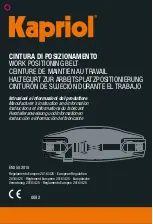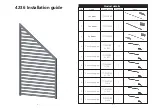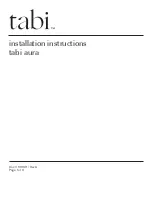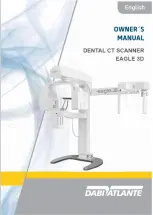
RGSS58
NOTE:-
Ø
Equipment that fails inspection in any way must immediately be
removed from use, or repaired by an entity approved by the
Ø
Workplace conditions, including, but not limited to, flame,
manufacturer.
corrosive chemicals, electrical shock, sharp objects,
machinery, abrasive substances, weather conditions, and
Ø
No on-site repair of equipment unless explicitly permitted by the
uneven surfaces, must be assessed by a Competent Person
manufacturer.
before fall protection equipment is selected.
Ø
Equipment subjected to forces of fall arrest must immediately
Ø
The analysis of the workplace must anticipate where workers
be removed from use. Snap hooks, carabiners, and other
will be performing their duties, the routes they will take to reach
connectors must be selected and applied in a compatible
their work, and the potential and existing fall hazards they may
fashion. All risk of disengagement must be eliminated. All snap
be exposed to. Fall protection equipment must be chosen by a
hooks and carabiners must be self-locking and self-closing, and
Competent Person. Selections must account for all potential
must never be connected to each other.
hazardous workplace conditions. All fall protection equipment
should be purchased new and in an unused condition.
Ø
Age, fitness, and health conditions can seriously affect the
worker should a fall occur. Consult a doctor if there is any
Ø
Fall protection systems must be selected and installed under
reason to doubt a user's ability to withstand and safely absorb
the supervision of a Competent Person, and used in a
fall arrest forces or perform set-up of equipment.
compliant manner.
Ø
Pregnant women and minors must not use this equipment.
Ø
Fall protection systems must be designed in a manner
Physical harm may still occur even if fall safety equipment
compliant with all federal, state, and safety regulations.
functions correctly. Sustained post-fall suspension may result in
serious injury or death. Use trauma relief straps to reduce the
Ø
Forces applied to anchors must be calculated by a Competent
effects of suspension trauma. Allowable individual worker
Person.
weight limit (including all equipment), unless explicitly stated
otherwise, is 40-100 kgs..
Ø
Harnesses and connectors selected must be compliant with
manufacturer's instructions, and must be of compatible size
MAINTENANCE, CLEANING, AND STORAGE
and configuration.
Ø
Ø
A pre-planned rescue procedure in the case of a fall is required.
The rescue plan must be project specific. The rescue plan must
Repairs to RGSS58 can only be made by an entity authorized by the
allow for employees to rescue themselves, or provide an
manufacturer. A RGSS58 fails inspection in any way, immediately
alternative means for their prompt rescue.
Ø
Cleaning after use is important for maintaining the safety and
Ø
Store rescue equipment in an easily accessible and clearly
longevity of RGSS58.
marked area.
Ø
Remove all dirt, corrosives, and contaminants from RGSS58
Ø
Training of Authorized Persons to correctly erect, disassemble,
before and after each use. If RGSS58 cannot be cleaned with
inspect, maintain, store, and use equipment must be provided
plain water, use mild soap and water, then rinse and wipe dry.
by a Competent Person.
NEVER clean RGSS58 with corrosive substances.
Ø
Training must include the ability to recognize fall hazards,
Ø
When not in use, store equipment where it will not be affected by
minimize the likelihood of fall hazards, and the correct use of
heat, light, excessive moisture, chemicals, or other degrading
personal fall arrest systems.
elements.
Ø
NEVER use fall protection equipment of any kind to hang, lift,
LIMITATIONS
support, or hoist tools or equipment, unless explicitly certified
for such use.
Fall Clearance: There must be sufficient clearance below the
anchorage connector to arrest a fall before the user strikes the
Ø
Maintenance of equipment must be done according to
ground or an obstruction. When calculating fall clearance, account
manufacturer's instructions. Equipment instructions must be
for a MINIMUM 3' safety factor, deceleration distance, user height,
retained for reference.
length of lanyard/SRL, and all other applicable factors.
Ø
Prior to EACH use, all equipment in a fall protection system
Swing Falls:
Prior to installation or use, make considerations for
must be inspected for any potential or existing deficiencies that
eliminating or minimizing all swing fall hazards. Swing fall occurs
may result in its failure or reduced functionality. IMMEDIATELY
when the anchor is not directly above the location where a fall
remove equipment from service if any deficiencies are found.
occurs. Always work close or in line with anchor point as possible.
Swing falls significantly increase the likelihood of serious injury or
Ø
Equipment must be inspected by a Competent Person at least
death in the event of a fall.
every six months. These inspections must be documented in
equipment instruction manual and on equipment inspection
Compatibility:
When making connections with RGSS58,
grid label.
eliminate all possibility of roll-out. Roll out occurs when interference
Ø
Equipment must be inspected for defects, including, but not
limited to, the absence of required labels or
closing and self-locking and withstand minimum load of 3600 lbs.
markings, improper form/fit/function, evidence of cracks, sharp
edges, deformation, corrosion, excessive heating, alteration,
Vertical Lifeline Assembly (VLA): Specific Applications
excessive wear, fraying, knotting, abrasion, and absence of
parts.
Page 2 of 4
Direction of Usege
Close the flange and
Tighten the screw nut
Direction of Usege
Now, Connect The
System with your
Harness using a
carabiner and the
System is ready for
use
Now Install the Rope
Into The Fall Arrester
Direction of Usege
remove it from service, and contact manufacturer to inquire about
its return or repair.
between a hook and the attachment point causes the hook gate to
unintentionally open and release. All connector gates must be self






















